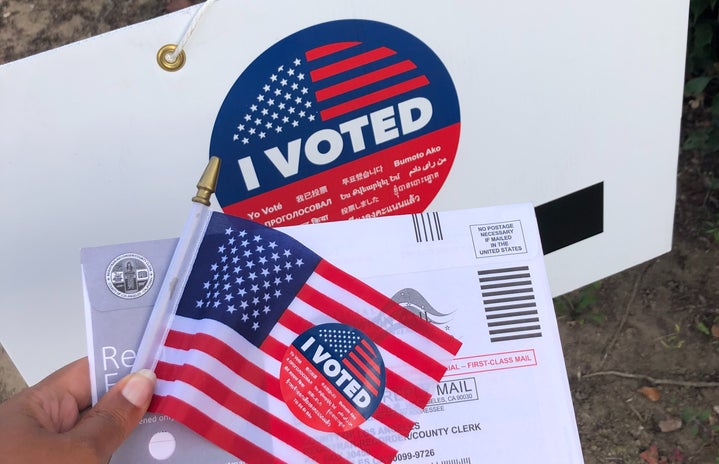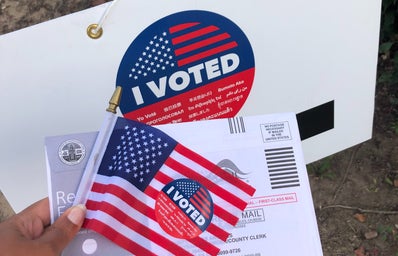When I was 13-years-old, a few girls in my grade started an Instagram account called “Feministpineapple.” When I saw it, I had no idea what it meant so I decided to research a little more on this term “feminist.” And thus, my political journey had begun.
I became an admin of the account and started to post things that I had seen that I agreed with. I formed my own political opinions for the first time, which I haven’t stopped doing since. I had always been raised watching the evening news, going to vote with my parents and being told the importance of civic engagement, but now I felt like there was no choice but for me to get politically involved. A passion began to burn within me, and I didn’t understand how people weren’t talking about politics all the time.
Politics is treated as taboo. We say, “no politics at the dinner table” to avoid making a situation awkward or upsetting someone, but many of our “dinner table” conversations are inherently political to begin with. Complaining about the potholes on your commute to work? Local Highway Department. Upset that your public school used its budget for a new turf field instead of more textbooks? School budget vote. Talking about the news of the devastating hurricanes down South? You guessed it, politics is involved there too between getting the victims relief and well as taking climate change action to prevent them from happening in the future.
Politics is not an inherently dirty word. We shush people when they bring up LGBTQ+ rights, police brutality and gun control. The more that we shush people when they bring these topics up, the more we stigmatize these issues that impact people’s daily lives. Being able to discuss political topics is an essential part to stopping disinformation, creating a more informed society and getting people passionate about being civically engaged. Talk about politics enough and even the most apolitical people will have to find one topic that they care about.
We need to be able to talk about politics at the dinner table. This does not mean we need to attack people or get in screaming arguments at the dinner table. But bringing up news stories, election updates, political concerns and having these sometimes uncomfortable or difficult conversations will normalize political topics in day-to-day life. As I’ve established, these political concerns already exist in day-to-day life, so we might as well talk about them. Normalizing political conversations empowers individuals to take action on the issues that they find passion in.
This election is critical. Talk to your neighbors, your teachers, your friends, your classmates for their perspectives. Everyone brings their own experience and background to political issues. Being able to discuss politics and ask questions is an important life skill. The more that we do it, the more informed of a voter base we will create.
Use your freedom of speech and freedom to critique the government. Use your right to vote (that so many do not get, even in the U.S.). Politics involves everyone, starting with you. Bring it up at the dinner table.
**Author’s note: I want the readers to know that there are some situations where it is unsafe or not smart to express your political beliefs. This article was a general take on normalizing political speech, but please use your best judgement on when to do so.


